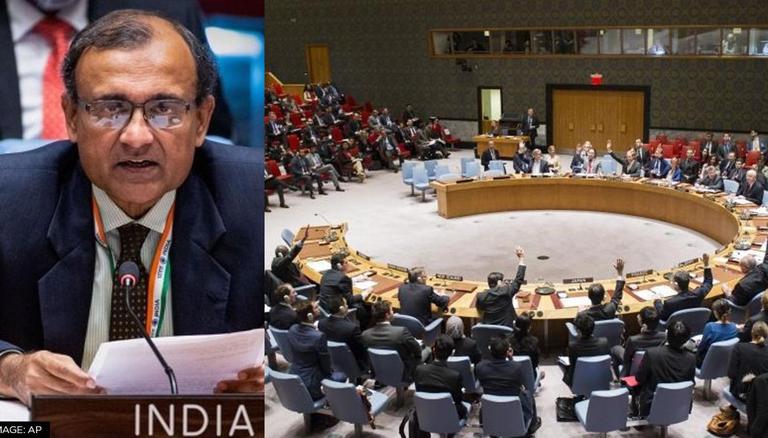India abstained once again when the United Nations General Assembly (UNGA) voted 141-5 (35 abstentions) to condemn Russia’s invasion of Ukraine and demand that Moscow remove its soldiers unconditionally. After representatives from more than 120 countries, territories, and associations spoke for two days in a special emergency session of the UNGA, the resolution was voted on.

After a similar resolution failed to pass the United Nations Security Council (UNSC) on Friday due to Russia’s veto, the General Assembly session was called.
The resolution, which had 96 nations as co-sponsors, needed the approval of two-thirds of those present and voting to pass. It criticises Russia’s’special military operation’ [invasion] on February 24. It declares that no lands gained by force will be recognised and demands that Russia withdraw from Ukraine “now, entirely, and unconditionally.”
Prime Minister Narendra Modi talked with Russian President Vladimir Putin just before the election. According to the administration, they discussed “safe evacuation” of Indians from war zones.
T. S. Tirumurti, India’s Permanent Representative to the United Nations, stated in his explanation of the vote statement to abstain that the “safe and uninterrupted transit” of Indian people, particularly students, was India’s “top concern.” Mr. Tirumurti expressed India’s optimism that the second round of negotiations between Russia and Ukraine would achieve favourable outcomes, calling for a “immediate ceasefire” and humanitarian access to war zones.
India is in an awkward situation as it tries to balance its interests with both Moscow and the West as a result of Russia’s activities. India is apprehensive of the consequences of not criticising one nation unilaterally seeking to modify the boundaries it shares with another, given its own experiences with China and Pakistan.
“India urges that all Member States demonstrate their commitment to the principles of the UN Charter, to international law and respect for sovereignty and territorial integrity of all states,” Mr. Tirumurti stated on Wednesday.
Bhutan, Nepal, and the Maldives, for example, were among the countries in India’s neighbourhood that backed the resolution. Afghanistan, which is now governed by a terrorist group (the Taliban), and Myanmar, which is currently ruled by a junta, both voted in favour. Bangladesh, Pakistan, and Sri Lanka abstained, as did India. China was likewise a no-show.
The United Arab Emirates, which had voted against the resolution in the UNSC, voted in favour of it in the General Assembly. Countries “identify diplomatic off ramps” to resolve the crisis, according to its spokesperson.
Other nations mentioned India in their addresses. In his statement, the representative of Russian ally Belarus, a nation bordering Russia and Ukraine that is controlled by an authoritarian, cited prejudice among Indian students. “On February 26th, Polish border guards beat up and turned back a group of about 100 Indian students into Ukraine, who were then graciously housed in a refugee camp in Romania,” the spokesperson stated.
Sergiy Kyslytsya, Ukraine’s envoy, said that Ukraine was saddened by the death of an Indian student in Kharkiv as a result of Russian shelling, and expressed condolences to the family of the dead, Naveen S. G. of Karnataka.
